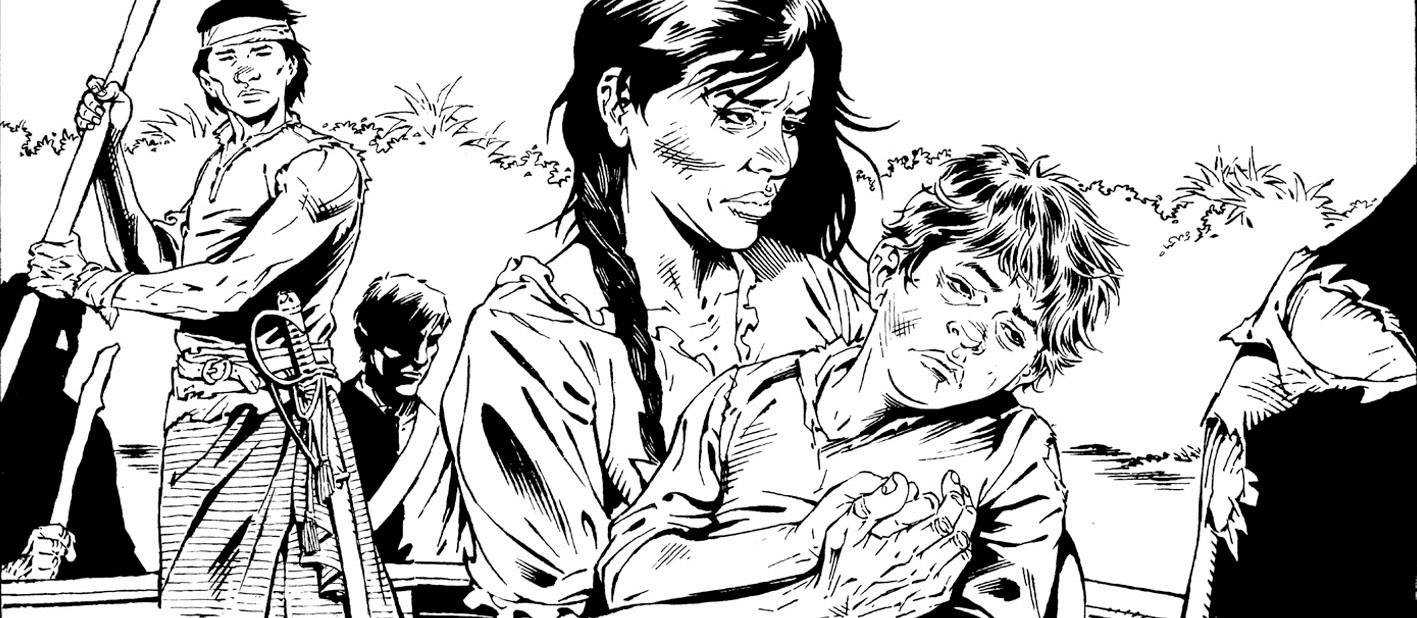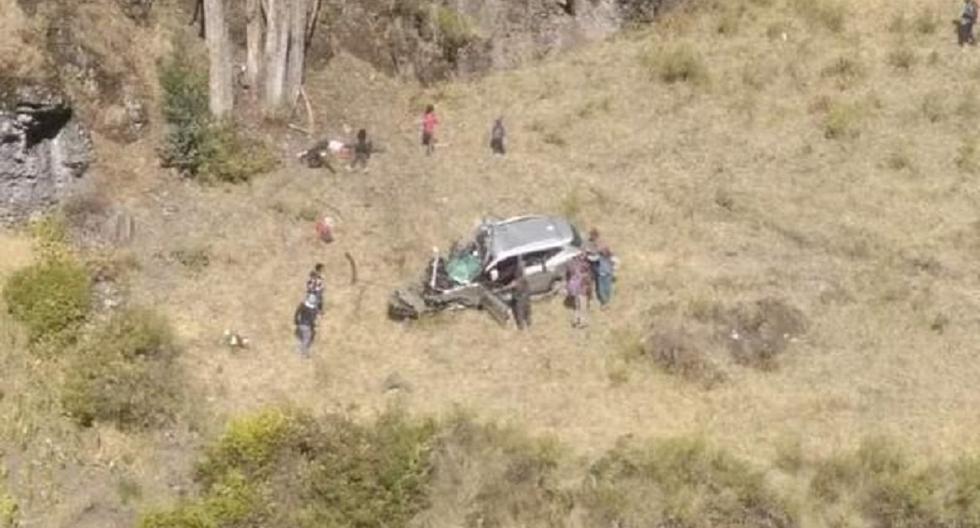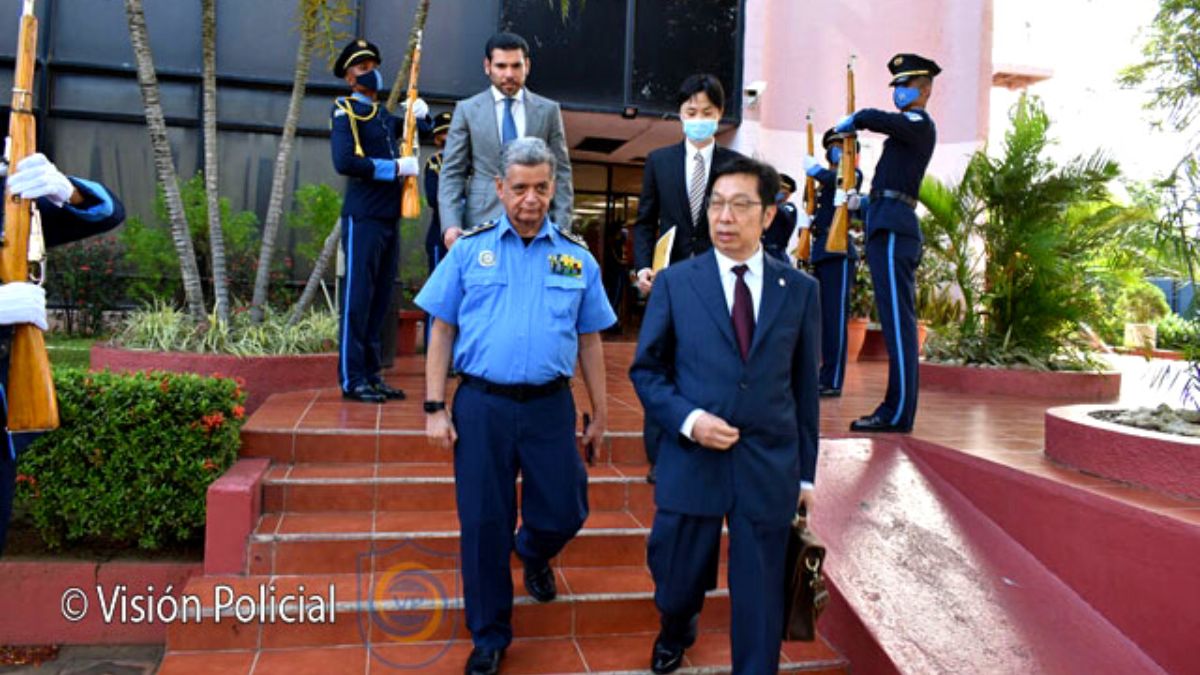-TESTIMONIES OF THE SERGEANT (I): the woman, the correspondent and the fall of Cerro Corá-
By Gonzalo Cáceres – journalist
Stephen Bonsal does not hide his sympathy for the bravery of the Paraguayans. He even indulges in the impressive personality of his quirky interviewee. With his lines he honors the pain of a mutilated people, hungry and ashamed; that shame of the vanquished.
It was 1912 and the old Sergeant navigates her mind in search of those heavy memories of the Great War.
JOURNEY TO NOTHING
The Sergeant avoided certain death by searching for food and water. She was not in the Cerro Corá camp the morning the Imperial Army put an end to the War. The woman had no choice, she hid in the mountains and saw her comrades-in-arms die.
After the massacre, it was proposed to return to the capital.
“In one way or another, the Sergeant managed to reach Asunción, following the path of the Brazilian army, traveling at night in the same way that they had done during the day,” Bonsal starts.
“’I thought of nothing except food. Very late at night, when there was nothing nearby, or very early in the morning, when they had already started a new march, I went stealthily towards the already extinguished fires, and searching through the ashes, I had found crumbs of food that had fallen from the cooking pots when they left the camp to begin the march. I could hardly believe my eyes when I saw the things they had left behind. I suppose that is the habit among the conquerors. But being that I just got back from our starving days, it’s hard to believe what I saw. These lucky bands of blacks killed a steer every day! And behind, on the ground, they left bones that still had fat. To obtain these, I had to fight with the scavengers of the jungle and the caracaras of the air’”, said the veteran.
She suffered a lot from the dirty water of the rivers and streams. “’The Macacos used to drink all the good water, and with it they washed their wounds and wet their bandages to cool their extremities, and they let their steers and horses pass to wallow in the mud. ‘Yuck! It was terrible. I was able to do many things, I, a soldier of the great army of Paraguay, who was hungry but never thirsty, but after this, I could no longer drink’”.
“For the 40 days in which she traveled in the wake of the Brazilians, she quenched her thirst with the juice of the apepúes ‘that the Marshal with his wisdom had planted in such isolated parts when long before the storm he saw the clouds ahead of war beginning to form.
“’You saw how he saved my life,’ commented Sgt. ‘Yes, (the Marshal) saved my life, but he lost our country, as many say. But they are fools. The macaques were about to arrive in any case, but while he (López) was alive, he had them stop,’” she refuted.
THE CHILDREN AND THE GRIM LANDSCAPE
The Sergeant thought that her problems would end when she arrived in Asunción, but the derision had only just begun. She had nine children, and his sister had six, a major problem on her hands.
The sister had received portions of food for everyone as children of the army, but when the war ended, she had already spent her savings and when the Sergeant came “she ended up with the last penny buying some cloth to cover her nakedness in the most decent way possible” .
“’What a sight this was! Our little creatures were pale and sore, so weak that they could not stand up, dragging themselves on the grassy streets, their limbs skinny, bare, and covered with scabs, and their stomachs swollen with the grass that was their only food.’
20 THOUSAND WOMEN
“Soon in Asunción there were about twenty thousand unprotected women who came from the devastated lands. There they found themselves without help and most of them without hope”, says Bonzal. “Some of the latter turned their faces to the walls and died, cursing the macaques and leaving their offspring with us. But there were some who did not go crazy and among them were the veterans of the great army; they have already been fighting to save the Homeland in their battle sites, and now they were determined to save their race that was on the verge of extinction, because almost no man had survived the catastrophe. They were determined to honor their husbands by defeating their conquerors,” Sgt.
“THE SEED OF OUR MEN SHOULD SURVIVE”
For certain, there were about six thousand Brazilian soldiers in Asunción since January 1, 1869, and a similar number in neighboring places. The women, “the mothers of all those who survived from Paraguayan blood,” became servants of these allies, “taking groceries for wages.”
“They were quite rich, these macaques, getting double their war pay; and besides, the Sergeant explained, there were several thefts, of course, and with these many of them they could support two of us. We were about twenty thousand women, the widows of the war, and I think that on average we had five children each of us. Yes, we had more children these days, but many starved to death during the war, leaving us with only five each. My only thought and the only thought of all of us was that the seed of our men should survive and that the Guarani blood should not disappear from the world”.
It is at this point that -notes Bonsal- the Sergeant brings back the memory of her late husband. “All my children lived and they have raised about sixty grandchildren for my husband, murdered in Cerro Corá. Yes, I have seen it fallen right there, and before starting my trip to my town, I put a scarecrow next to it to scare the caracaras. This was silly of me, don’t you think? But women are sentimental, even when they were soldiers.”
FRUITS OF BARBARIAN
The invaders mistreated the Paraguayans to the point of not being able to. Sexual assaults were commonplace in those days. Product of this situation, the Paraguayans engendered offspring of the murderers of their fathers, sons and brothers.
“We were the lucky ones. Few of us had children from our conquerors. It seems to me that it was generally so. I guess our blood, poisoned by so much hate, couldn’t flow together, ”she reflected.
However, the irreducible Sergeant assumes that some feeling could be born from so much tragedy. “After having lived with my Brazilian man for about two years I surprised myself with a strange feeling, and then a macaque boy came along. He was a curious little worm, with a purple face and dark curly hair, but before long he wrapped himself around my heart. I called him my grandson, because he came to me to save my children; he was born from the love I had for my Paraguayan (children). But he soon he died. And strange as he was, I still felt sad. I couldn’t cook for a week, thinking of this little black worm that had died, although of course it was better that he died”.
END OF OCCUPATION
After the proclamation of peace, and the establishment of a government functional to the allied interests, the Brazilian Army announced its departure from the country (1876). The carnage ended, but the dispossession mutated into other forms.
The Sergeant followed ‘her’ Brazilian to the city of Corumbá, Matto Grosso do Sul, and justified herself. “When the day came to leave, I entered the chata, the army ship, with my Brazilian man. He still had four small children and my sister three, and none of them could support themselves. And in the grassy city there was still no trade and no money, no resources, and most of all, no charity. If we had stayed behind (in Asunción), what would have happened to these creatures? So we put our rifles on our shoulders and put our backpacks in order and went up the river with the Brazilian soldiers.”
Some 6,000 Paraguayans left the country with the invaders, most never returned.
TO BE CONTINUE
Author’s note: Transcription of the translation of the original article published in the magazine Estudios Paraguayos; Vol XXXV, No 2 (Year 2017), edited by the Catholic University of Asunción (UCA), delivered by the American historian Thomas Whigham, a specialist in the Great War.






